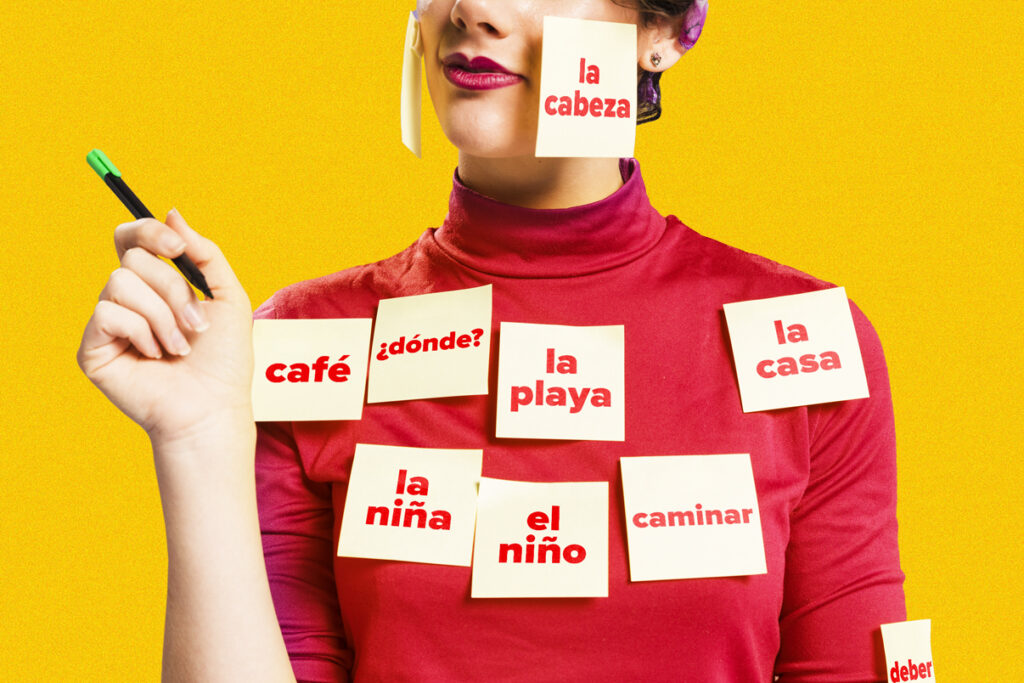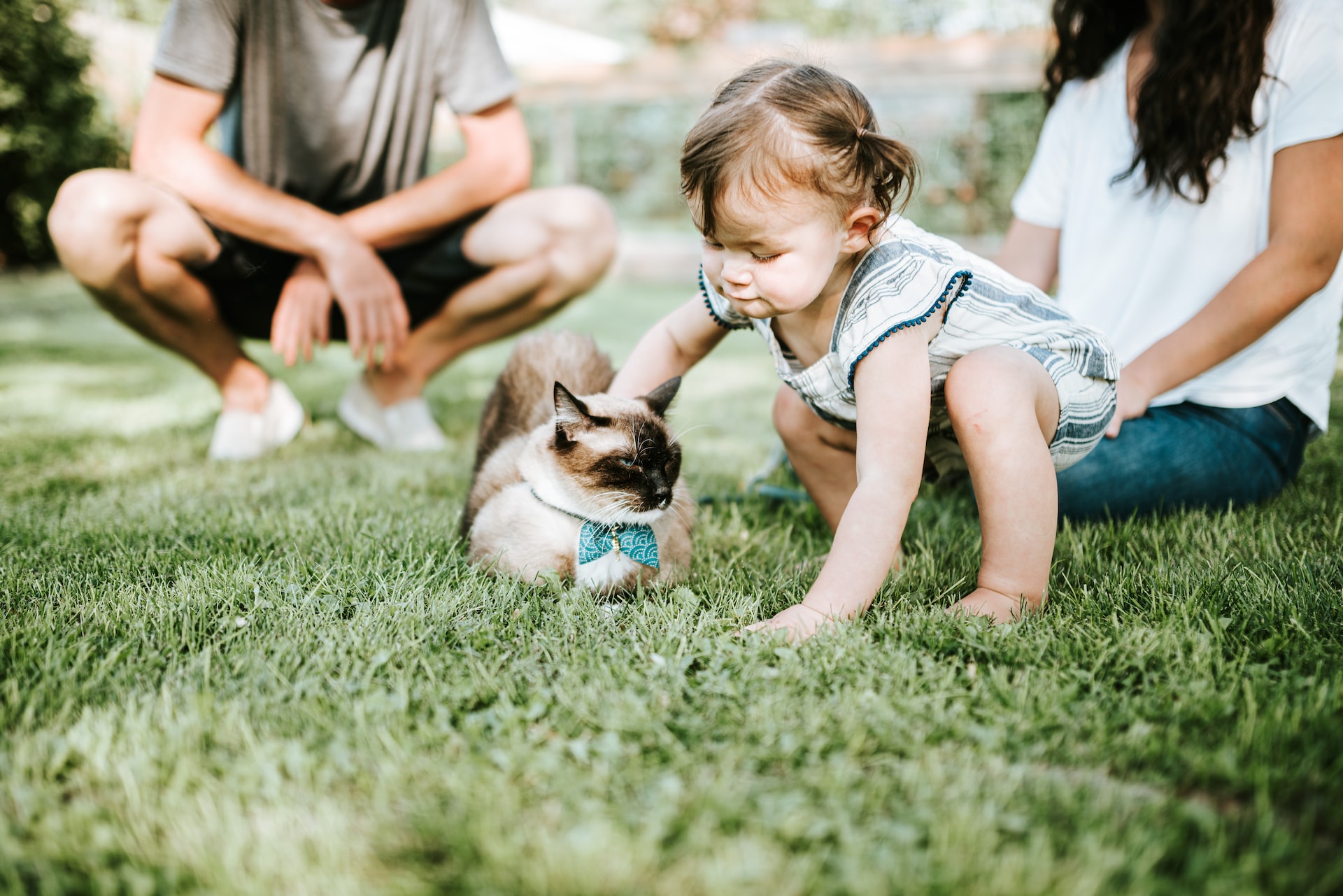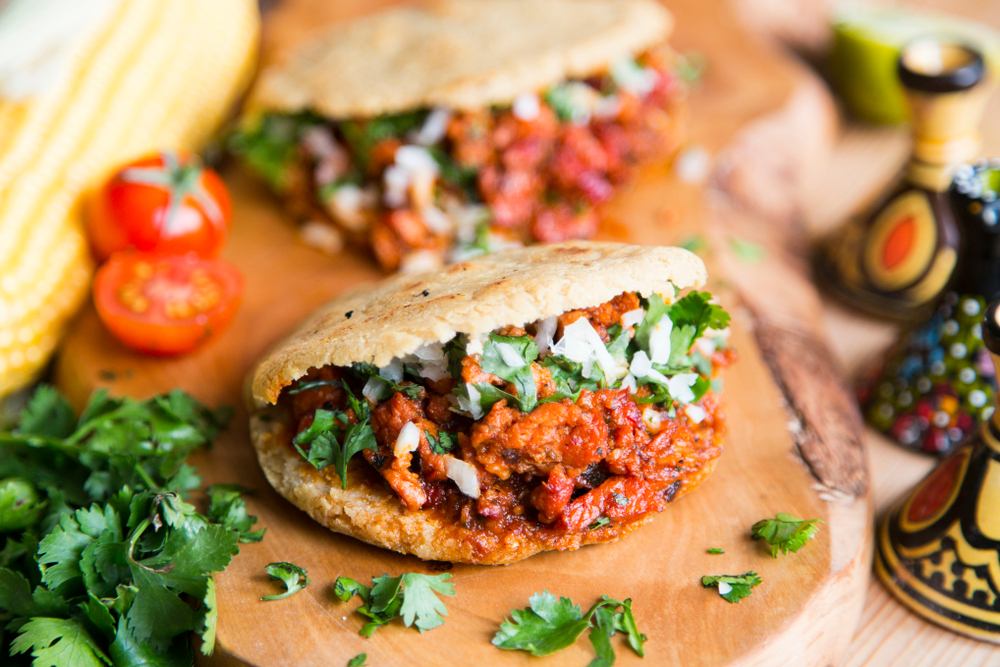
300+ Common Spanish Words and Phrases to Build Your Vocabulary
When it comes to travel, education, business situations and personal communication, common words rule the day.
Nearly any Spanish conversation calls for an understanding of basic vocabulary.
In your day-to-day interactions with friends, neighbors and co-workers, chances are that you’re using basic nouns, verbs, interrogative words and conversational phrases.
Let’s go over this list of over 300 words to start building your Spanish core vocabulary!
Contents
- Most Common Spanish Words
- Common Spanish Greetings and Conversational Phrases
- Common Spanish Nouns
- Common Spanish Verbs
- Common Spanish Adjectives and Colors
- Common Spanish Numbers
- Common Spanish Words for People
- Common Spanish Words for Animals
- Common Spanish Words Related to Food
- Spanish Question Words
- Easy Spanish Words (Spanish-English Cognates!)
- Common Spanish Words for Days of the Week
- Common Spanish Words for Traveling
- More Resources to Learn Spanish Vocabulary
- And One More Thing…
Download: This blog post is available as a convenient and portable PDF that you can take anywhere. Click here to get a copy. (Download)
Most Common Spanish Words
There are certain Spanish words that you will hear pretty much everyday. Here are some of the most common Spanish words.
| Spanish | English |
|---|---|
| Hola | hello |
| Adiós | bye |
| Sí | yes |
| No | no |
| Por favor | please |
| Gracias | thank you |
| Lo siento | I'm sorry |
| Perdón | sorry/excuse me |
| ¿Cómo estás? | how are you? |
| De nada | you're welcome |
| Yo quiero... | I want... |
| Me gusta... | I like... |
| No me gusta... | I don't like... |
| El / La | the |
| Yo | I, me |
| Tú | You |
| Él | he, him |
| Ella | she, her |
| Usted | you (formal) |
| Nosotros | we |
| Vosotros | you (plural) |
| Ellos / Ellas | they, them |
| Ustedes | You (plural) |
| Por / Para | for |
You can also check out this video with 300 Spanish words that you must know if you’re an absolute beginner:
Common Spanish Greetings and Conversational Phrases
If you want to start a conversation, you need to know how to greet someone properly. Then you’ll need to whip out some phrases that allow for basic communication in any situation. Learn these essentials phrases to speak with friends as well as strangers!
| Spanish | English |
|---|---|
| Buenos días | good morning |
| Buenas tardes | good afternoon |
| Buenas noches | good night |
| ¿Cómo te llamas? | what’s your name? |
| Me llamo… | my name is… |
| ¿Qué tal? | how are you?/how's it going? |
| ¿Cómo te va? | how's it going? |
| ¿Qué pasa? | what's up? |
| ¿Cómo está usted? | how are you? (formal) |
| Bien, gracias | fine, thank you |
| ¿Y tú? | and you? |
| Estoy... | I am... |
| Feliz | happy |
| Triste | sad |
| Estoy buscando... | I'm looking for... |
| ¿Qué haces? | what are you doing? |
| ¿Te gusta...? | do you like...? |
FluentU takes authentic videos—like music videos, movie trailers, news and inspiring talks—and turns them into personalized language learning lessons.
You can try FluentU for free for 2 weeks. Check out the website or download the iOS app or Android app.
Click here to take advantage of our current sale! (Expires at the end of this month.)

Common Spanish Nouns
Nouns identify people, places or things, and they make up a large percentage of Spanish core vocabulary. They’re some of the most basic words and are used in nearly every sentence—so get to know a few of the most common ones!
| Spanish | English |
|---|---|
| La casa | the house |
| La mesa | the table |
| La ventana | the window |
| La silla | the chair |
| La puerta | the door |
| El reloj | the clock/watch |
| El piso | the floor |
| El coche /El carro | the car |
| La calle | the street |
| La tienda | the store |
| La biblioteca | the library |
| El libro | the book |
| La playa | the beach |
| La montaña | the mountain |
| La iglesia | the church |
| El museo | the museum |
| La universidad | the university |
| El aeropuerto | the airport |
| La nariz | the nose |
| Los ojos | the eyes |
| La boca | the mouth |
| La cabeza | the head |
| El brazo | the arm |
| La pierna | the leg |
| La mano | the hand |
| El pie | the foot |
| El árbol | tree |
| La flor | flower |
| La vez | time (as in “five times”) |
| La parte | part |
| El tiempo | time |
| La vida | life |
| El gobierno | government |
| El día | day |
| El país | country |
| Los años | years |
Common Spanish Verbs
Verbs describe actions and are essential words when speaking any language. Of course, you’ll need to learn all their conjugations, but when memorizing new verbs it’s always best to learn the infinitive.
| Spanish | English |
|---|---|
| Abrir | to open |
| Ayudar | to help |
| Bailar | to dance |
| Cambiar | to change |
| Caminar | to walk |
| Cantar | to sing |
| Comenzar | to begin |
| Contar | to count/tell |
| Comprar | to buy |
| Correr | to run |
| Creer | to think/believe |
| Dar | to give |
| Deber | to have to |
| Decir | to say |
| Entender | to understand |
| Estar | to be |
| Estudiar | to study |
| Gustar | to like |
| Haber | to have |
| Hablar | to speak/talk |
| Hacer | to do/make |
| Ir | to go |
| Jugar | to play |
| Llamar | to call |
| Pagar | to pay |
| Partir | to leave/divide |
| Pedir | to ask for |
| Poder | to be able to |
| Poner | to put |
| Preguntar | to ask |
| Querer | to want |
| Saber | to know |
| Ser | to be |
| Tener | to have |
| Viajar | to travel |
| Visitar | to visit |
| Vivir | to live |
Common Spanish Adjectives and Colors
| Spanish | English |
|---|---|
| Grande | big |
| Pequeño | small |
| Caliente | hot |
| Frío | cold |
| Mojado | wet |
| Seco | dry |
| Izquierda | left |
| Derecha | right |
| Rojo | red |
| Rosa | pink |
| Naranja | orange |
| Amarillo | yellow |
| Verde | green |
| Azul | blue |
| Marrón | brown |
| Negro | black |
| Blanco | white |
Common Spanish Numbers
| Spanish | English |
|---|---|
| Uno | one |
| Dos | two |
| Tres | three |
| Cuatro | four |
| Cinco | five |
| Seis | six |
| Siete | seven |
| Ocho | eight |
| Nueve | nine |
| Diez | ten |
Common Spanish Words for People
Of course you’ll probably need to know some words to describe people and animals, since those are things you’ll also probably encounter every day!
| Spanish | English |
|---|---|
| La persona | the person |
| El hombre | the man |
| La mujer | the woman |
| El niño | the boy |
| La niña | the girl |
| La familia | the family |
| El esposo | the husband |
| La esposa | the wife |
| El padre | the father |
| La madre | the mother |
| El hijo | the son |
| La hija | the daughter |
| El hermano | the brother |
| La hermana | the sister |
| El abuelo | the grandfather |
| La abuela | the grandmother |
| El tío | the uncle |
| La tía | the aunt |
| El primo | the cousin (m) |
| La prima | the cousin (f) |
Common Spanish Words for Animals
| Spanish | English |
|---|---|
| Perro | Dog |
| Gato | Cat |
| Pez | Fish |
| Pájaro / Ave | Bird |
| Conejo | Rabbit |
| Hámster | Hamster |
| Conejillo de indias / Cobayo | Guinea pig |
| Tortuga | Turtle |
| Hurón | Ferret |
| Cerdo | Pig |
| Caballo | Horse |
| Burro | Donkey |
| Vaca | Cow |
| Pollo | Chicken |
| Oveja | Sheep |
| Cabra | Goat |
| Pavo | Turkey |
| Pato | Duck |
| Búfalo | Buffalo |
| Toro | Bull |
| Buey | Ox |
| Delfín | Dolphin |
| Tiburón | Shark |
| Ballena | Whale |
| Estrella de mar | Starfish |
| Calamar | Squid |
| Anguila | Eel |
| Caballo de mar | Seahorse |
| Medusa | Jellyfish |
| Foca | Seal |
| Nutria | Otter |
| Morsa | Walrus |
| León marino | Sea lion |
| Pingüino | Penguin |
| Pulpo | Octopus |
| Langosta | Lobster |
| Cangrejo | Crab |
| Gaviota | Seagull |
| Pelícano | Pelican |
| Camarón | Shrimp |
| Manta raya | Manta ray |
| Almeja | Clam |
| Loro | Parrot |
| Halcón | Falcon |
| Águila | Eagle |
| Cuervo | Crow |
| Pinzón | Finch |
| Pájaro carpintero | Woodpecker |
| Avestruz | Ostrich |
Common Spanish Words Related to Food
Food is a big part of Spanish culture, so here are the essential words for you to order your favorite meal!
| Spanish | English |
|---|---|
| La comida | Food |
| La bebida | Drink |
| El pan | Bread |
| La fruta | Fruit |
| La verdura | Vegetable |
| El huevo | Egg |
| La carne | Meat |
| El pollo | Chicken |
| La carne de vaca | Beef |
| La papa /La patata | Potato |
| El cerdo | Pork |
| Los mariscos | Seafood |
| El camarón | Shrimp |
| El arroz | Rice |
| Los frijoles | Beans |
| El agua | Water |
| El té | Tea |
| El café | Coffee |
| El jugo | Juice |
| La leche | Milk |
| La gaseosa | Soft drink |
| El alcohol | Alcohol |
| El vino | Wine |
| La cerveza | Beer |
| El desayuno | Breakfast |
| El almuerzo | Lunch |
| La cena | Dinner |
| El restaurante | Restaurant |
Spanish Question Words
Asking questions is an important part of speaking any language. These are the words you need to ask questions in Spanish:
| Spanish | English |
|---|---|
| qué | what |
| quién | who |
| cuál | which |
| cuándo | when |
| cuánto cuánta | how much / how many |
| cómo | how |
| dónde | where |
Easy Spanish Words (Spanish-English Cognates!)
Cognates are words that have the same origin or root word. There are hundreds of Spanish and English cognates, but start with learning these as an excellent way to effortlessly increase your vocabulary!
| Spanish | English |
|---|---|
| Tren | train |
| Necesario | necessary |
| Ordinario | ordinary |
| Público | public |
| Minuto | minute |
| Acción | action |
| Nación | nation |
| Organización | organization |
| Tradicional | traditional |
| Posible | possible |
| Básico | basic |
Common Spanish Words for Days of the Week
| Spanish | English |
|---|---|
| Hoy es.. | Today is... |
| Mañana es... | Tomorrow is... |
| Ayer fue... | Yesterday was... |
| El día | The day |
| La fecha | The date |
| El próximo | Next |
| Que viene... | The upcoming... |
| Siguiente... | The folllowing... |
| Pasado | Last |
| Anterior | Previous |
| Antier / Anteayer | The day before yesterday |
| Pasado mañana | The day after tomorrow |
| La semana | The week |
| El fin de semana | The weekend |
| Entre semana | Midweek |
| Cada / Todos los... | Every |
| El primer... del mes | The first __ of the month |
| De... a... | From __ to __ |
| Desde... hasta... | From __ to __ |
Common Spanish Words for Traveling
| Spanish | English |
|---|---|
| La maleta | suitcase |
| El regalo | present |
| El avión | plane |
| La escala | stopover/layover |
| Viajar | to travel |
| Descansar | to rest |
| Dar un paseo | to go for a walk |
| La playa | beach |
| El hotel | hotel |
More Resources to Learn Spanish Vocabulary
Common Spanish words open doors by facilitating communication. The more common vocabulary you know, the better off you’ll be.
This list is a great spot to start building your foundational vocabulary, but there are tons of great resources out there that can get you learning and practicing even more common Spanish words!
Here are some of the best resources to find more common Spanish vocabulary words to add to your word bank and build your core vocabulary!
This site contains a comprehensive list of 1,000 useful Spanish words that cover a wide variety of topics.
If your intent is to grow your vocabulary and add common words to your skillset, then this is a super great resource.
This vocabulary resource provides several lists divided into topics with some of the most common Spanish words.
Whether you’re honing your skills on greetings, body parts, shopping lingo or a number of other subjects, all of the applicable vocabulary is pre-sorted and labeled.
The website’s interface is very simple, so it’s easy to navigate and find vocabulary about whatever you want.
This resource has 1,000 common Spanish words and is more interactive than just a list of vocabulary.
The words and translations are divided into lists of 20 random words alphabetically sorted.
At the end of each list, learners are given the opportunity to take a quiz on what they’ve just learned. Each quiz asks learners to choose the correct translation of a word, so it’s a pretty straightforward, speedy process.
Quizzing yourself is a great method for gauging retention of these common words.
Now that you have over 300 more words in your core Spanish vocabulary, you have a good basis for most conversations.
So why not take a look at some not-so-common vocab, too?
Keep learning words and building that foundation!
Download: This blog post is available as a convenient and portable PDF that you can take anywhere. Click here to get a copy. (Download)
And One More Thing…
If you've made it this far that means you probably enjoy learning Spanish with engaging material and will then love FluentU.
Other sites use scripted content. FluentU uses a natural approach that helps you ease into the Spanish language and culture over time. You’ll learn Spanish as it’s actually spoken by real people.
FluentU has a wide variety of videos, as you can see here:

FluentU brings native videos within reach with interactive transcripts. You can tap on any word to look it up instantly. Every definition has examples that have been written to help you understand how the word is used. If you see an interesting word you don’t know, you can add it to a vocab list.

Review a complete interactive transcript under the Dialogue tab, and find words and phrases listed under Vocab.

Learn all the vocabulary in any video with FluentU’s robust learning engine. Swipe left or right to see more examples of the word you’re on.

The best part is that FluentU keeps track of the vocabulary that you’re learning, and gives you extra practice with difficult words. It'll even remind you when it’s time to review what you’ve learned. Every learner has a truly personalized experience, even if they’re learning with the same video.
Start using the FluentU website on your computer or tablet or, better yet, download the FluentU app from the iTunes or Google Play store. All annual subscriptions now on sale!










